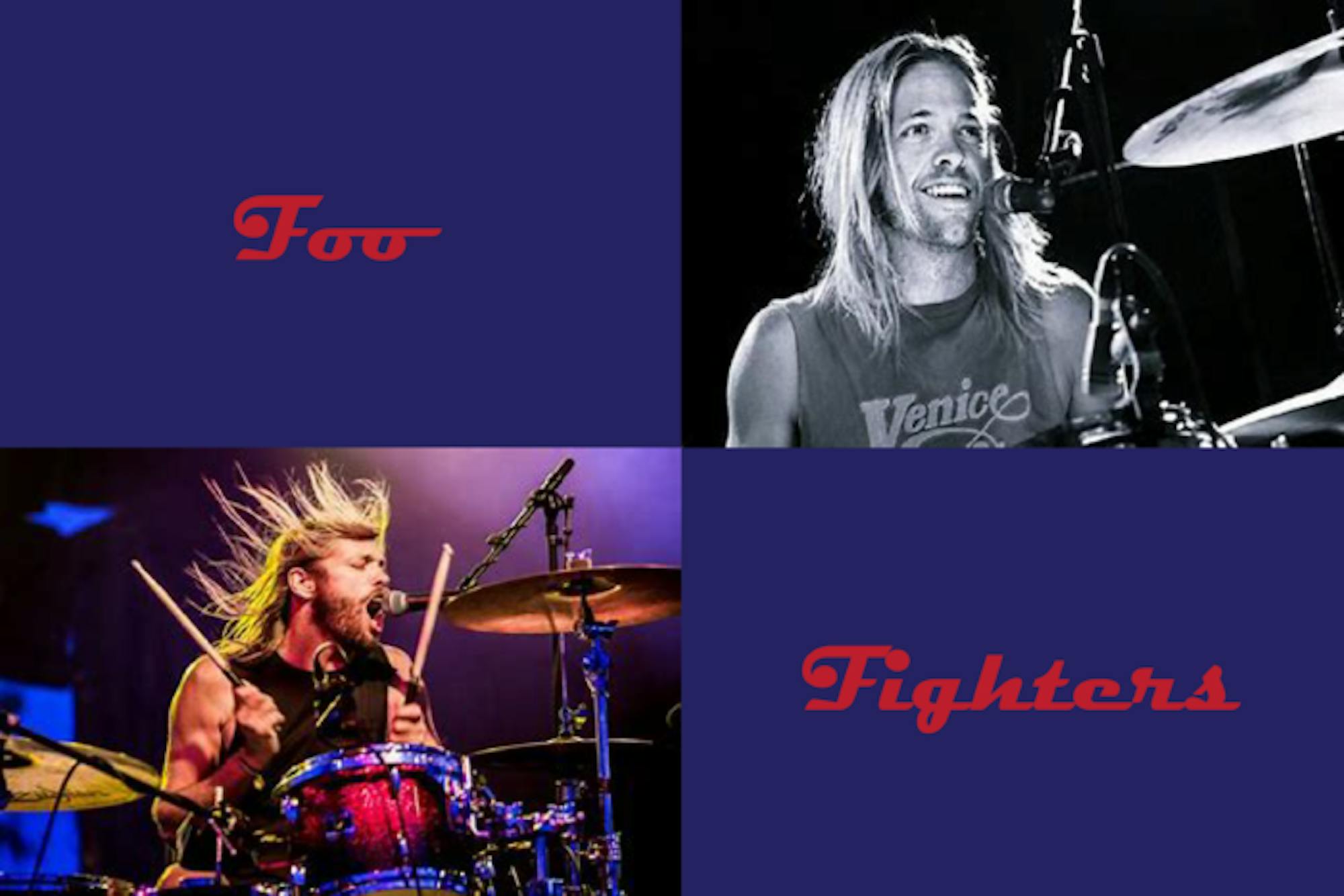
Last Saturday morning, when I opened my Instagram and started routinely exploring my feed, I abruptly stopped scrolling. My brain registered “Foo Fighters drummer Taylor Hawkins dies at 50.” Immediately, I checked Rolling Stone and the Foo Fighters Instagram to confirm that the information I read was not fake news. Both pages had posted tributes to the late drummer. Shock turned to sadness, which led to a reflection on Hawkins and the Foos’ impact on the music world as well as my life.
As I tell anyone when I talk about my music taste, the Foo Fighters were my first love. Their seventh studio album, “Wasting Light” was the first album I had on my hot pink iPod Nano. When I got my first locker in 6th grade, I taped a photo of the Foo Fighters on the door. (I was too cheap for magnets.) They were the soundtrack of my childhood, and Taylor Hawkins on the drums was the heartbeat. I remember coming home from volleyball practice one night and my mom called me into the family room. On the TV was the documentary that went along with the Foos’ album “Sonic Highways.” I remember watching all of the band members. Dave Grohl, the band’s brilliant frontman, obviously shone during the program. However, when the camera would cut to Taylor playing on his drums, he would always be wearing the biggest smile.
Hawkins joined the Foo Fighters as a drummer with big shoes to fill. Dave Grohl, before forming the Foo Fighters, played drums for Nirvana, one of the most iconic bands of the 1990s. Hawkins had his own unique style and rapport with Grohl before he joined the Foo Fighters. During his time drumming for Alanis Morissette, he and Grohl were often backstage at the same concerts and festivals. It was at these festivals that their relationship began, and the two became, as Grohl puts it, “a musical twin flame.”
Hawkins helped shape the Foo Fighters into a band that would produce countless albums and perform in front of huge crowds, most famously at Wembley Stadium. In addition to his work with the Foo Fighters, Hawkins worked on some of his own projects. Most recently, he worked with Chaney and Matt Navarro in their pandemic jam group, NHC.
Grohl attributes much of the Foo Fighters’s success to Hawkins, and it is easy to see why. His joy and passion for music was infectious to everyone that surrounded him. Last summer, nearly 12 years after I first listened to “Wasting Light,” I finally made a pilgrimage (yes, it was a religious experience) to see the Foo Fighters live at Lollapalooza. In a euphoric state of being star-struck and stimulated by the music, I watched as the Foos cranked out their set. True to every photo and video I had seen through the years, Hawkins drummed furiously with his trademark smile radiating to where I stood in the crowd. The energy that flooded Grant Park that night was nothing short of immaculate. Classic songs and new material came together to form a collage of their music, moments of my life and theirs intertwined.
Later in the concert Hawkins left the drums, took the mic and belted out “Somebody to Love” by Queen. Drummers, usually the unsung heroes of bands, do not get too much spotlight. However, when Hawkins took the mic he threw his body into the song with the comfort of a full time lead singer. It was a joy to watch, and a testament to Hawkins’ devotion and mastery of music.
At the concert before his passing, Lollapalooza Brazil, Hawkins sang “Somebody to Love” again. Reflecting upon this, it was fitting that he sang that song, since he gave all the love he had to his music, his bands, his family and his fans. Hawkins’ loss will be felt throughout the music industry and impact the future of the Foo Fighters. The legacy he leaves behind as the smiling, high-energy drummer is inspiration for all those who aim to dedicate themselves wholly to their passion.
In memoriam: Foo Fighters drummer Taylor Hawkins
Makayla Hernandez | The Observer
Image sources: amazon.com, inews.id









